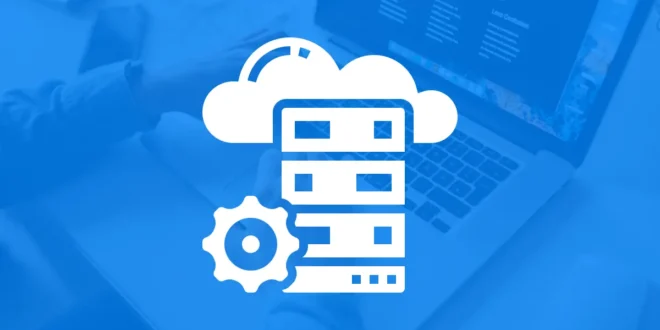In this article, we will cover the most commonly asked questions when it comes to website hosting. Let’s get started!
What is hosting and how does it work?
Hosting refers to both the physical location where a website’s data is stored and the service that provides this storage space. When a user’s computer browser requests information from a website, it receives the content from a server. Essentially, a server is a computer that operates continuously, 24/7, throughout the year. It stores various site files, including scripts, text, photos, and videos.
Once a website is created, individuals or businesses rent hosting services from providers and transfer their site data to these servers. These servers are typically housed in specialized locations called data centers. Once the data is transferred to the hosting service, the website becomes accessible to any Internet user. If you don’t want to have issues with website availability, you need to choose a reliable hosting provider. To start your search, click here.

Is it possible to host a website on my own computer?
In theory, hosting your website on your personal computer is doable, but it comes with some challenges. Hosting providers typically have specialized software that optimizes website performance and provides protection against potential hacks and malicious activities. If you decide to host your site on your own computer, you’ll need to keep the computer running continuously and be responsible for monitoring its performance.
One significant drawback is that if your computer turns off, crashes, or experiences any issues, your website will immediately become unavailable on the internet. This could lead to significant downtime and affect your website’s accessibility to visitors.
To ensure consistent availability and reliable performance of your website, it is highly recommended to use the services of hosting providers. These providers have the technical expertise to ensure your website remains accessible 24/7, providing you and your visitors with a seamless online experience.

What is the cost of hosting?
The cost of hosting services encompasses not only the rental fee for the server space but also for the processing power, RAM, and other resources necessary for the website to function smoothly. Larger and more resource-intensive sites, such as popular online stores and social networks, require greater processing power, making hosting for such sites more expensive compared to hosting a small business website.
As a result, hosting services can be broadly categorized into three main types:
Virtual Hosting: Designed for small websites with approximately up to 5000 visitors per day.
Virtual Private Server: Suitable for larger websites with traffic ranging up to 10,000 visitors per day.
Dedicated Server: Geared towards very large websites attracting traffic exceeding 10,000 visitors per day.

What are the differences between hosting plans?
Similar to home PCs, hosting services vary based on their specific characteristics. Hosting companies offer different tariff plans to accommodate various needs.
The most common differences among hosting plans include:
- Disk space allocation.
- Amount of RAM available.
- A number of hosted sites and files are permitted.
- Processor time and processing power.
- Software installed on the server.
As a website owner, selecting the right hosting plan requires an understanding of your site’s specific requirements. To make an informed decision, it’s essential to clarify all the details with the developers or specialists who created your website. They can guide you in identifying the hosting specifications that align best with your site’s operations and needs. By working closely with your developers, you can choose the most suitable hosting plan for optimal website performance and functionality.

How is hosting different from a domain?
To grasp the difference between a domain and hosting, let’s use an analogy. Imagine a furnished house, where the furniture symbolizes the files of your website, and the house itself (the place where the furniture is kept – the files) represents the hosting. In this analogy, the domain is comparable to the address of the house. Instead of a city, street, house number, and postal code, you use a combination of words and numbers within your domain, effectively serving as the address of your site.
It’s important to note that both hosting and a domain are essential for the proper functioning of your website on the internet. These are two distinct services that are acquired separately.
Hosting provides storage and infrastructure for your website’s files, while the domain serves as a unique address that directs users to your website. Combining both services enables your website to function fully and be accessible to visitors online.
 Comeau Computing Tech Magazine 2024
Comeau Computing Tech Magazine 2024




